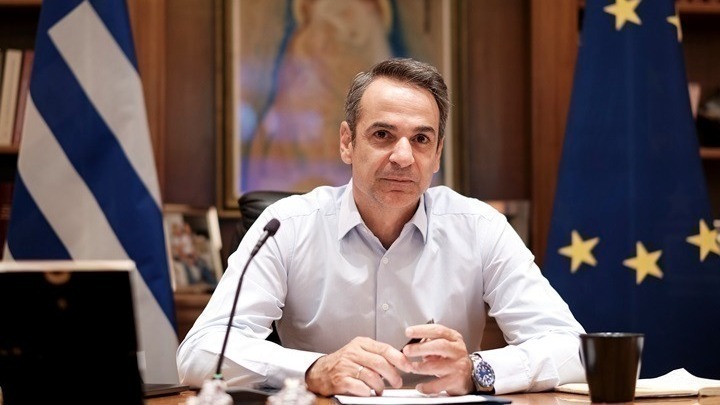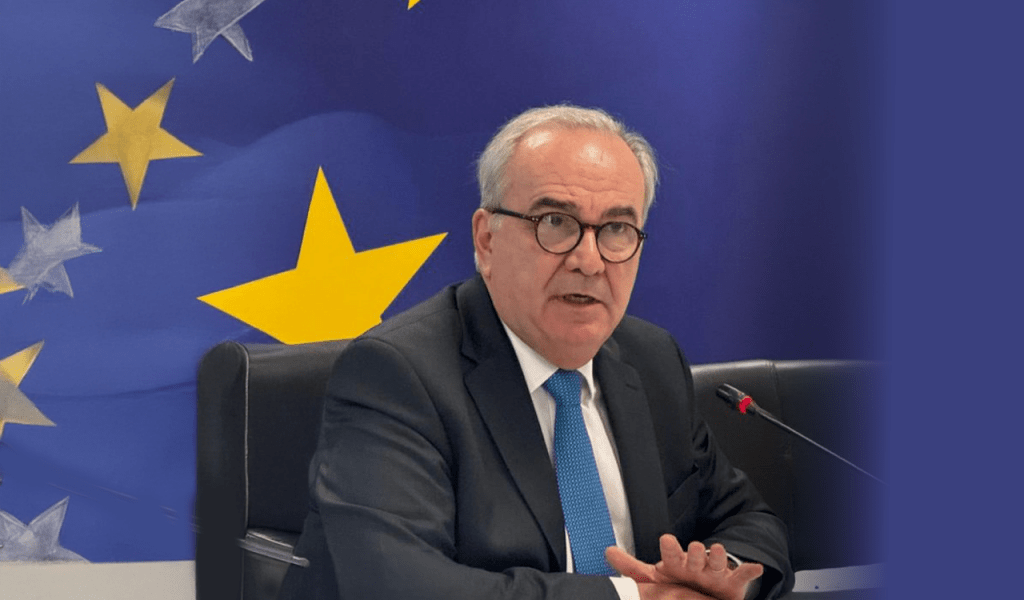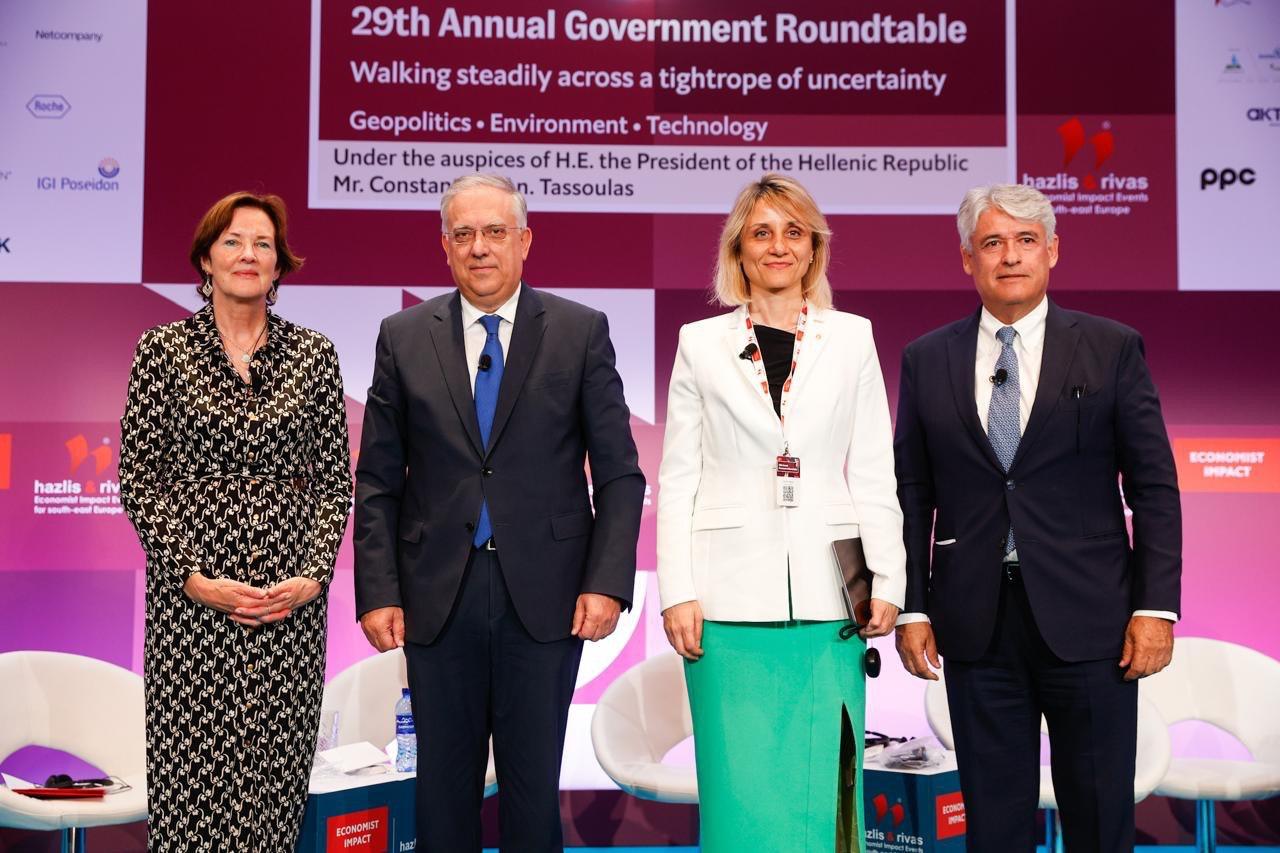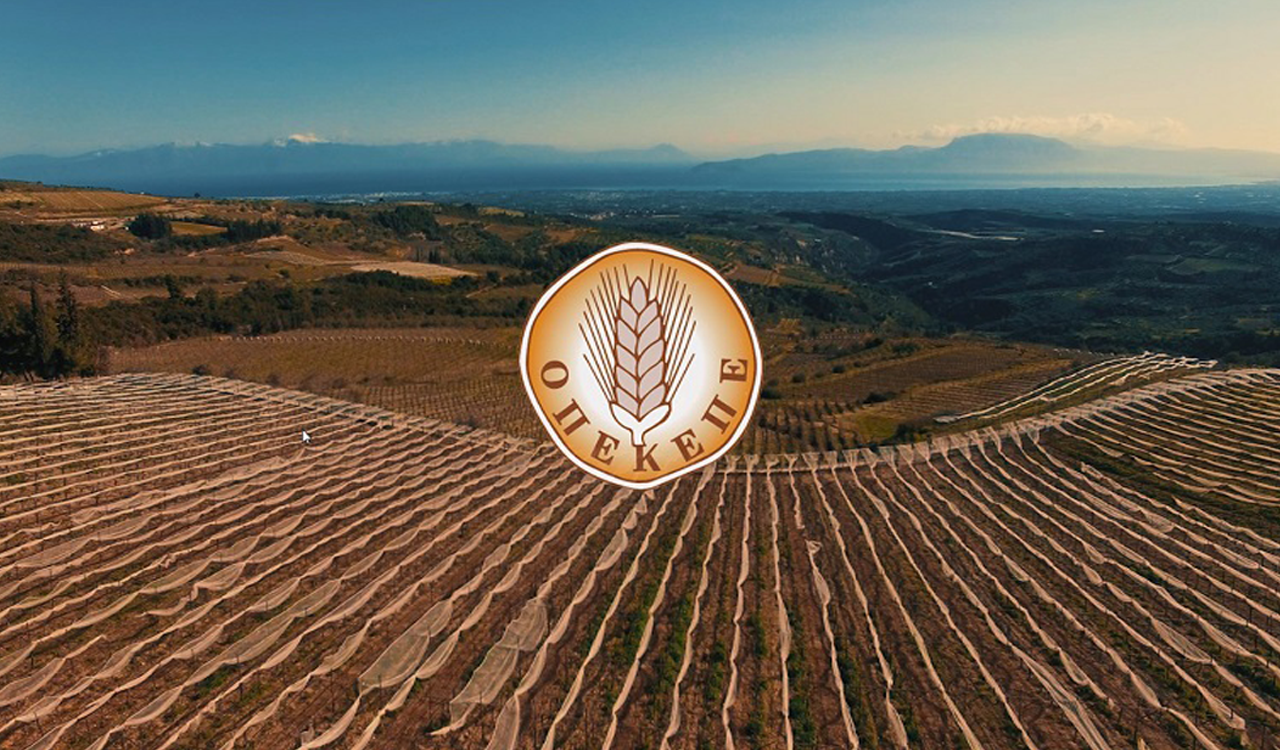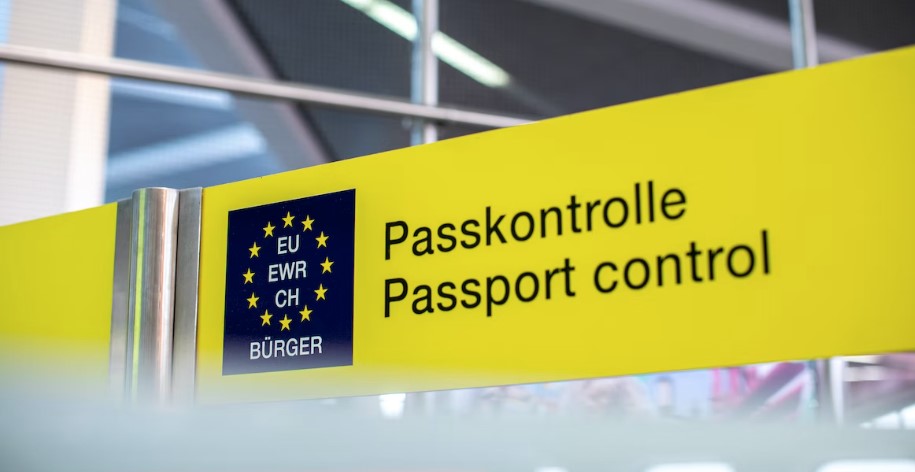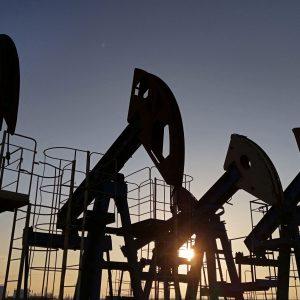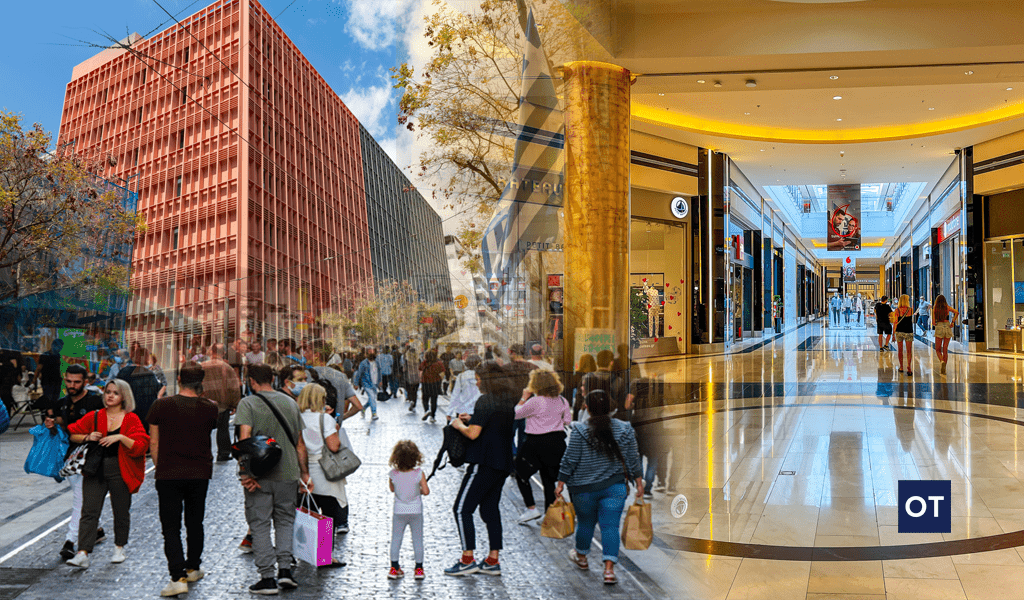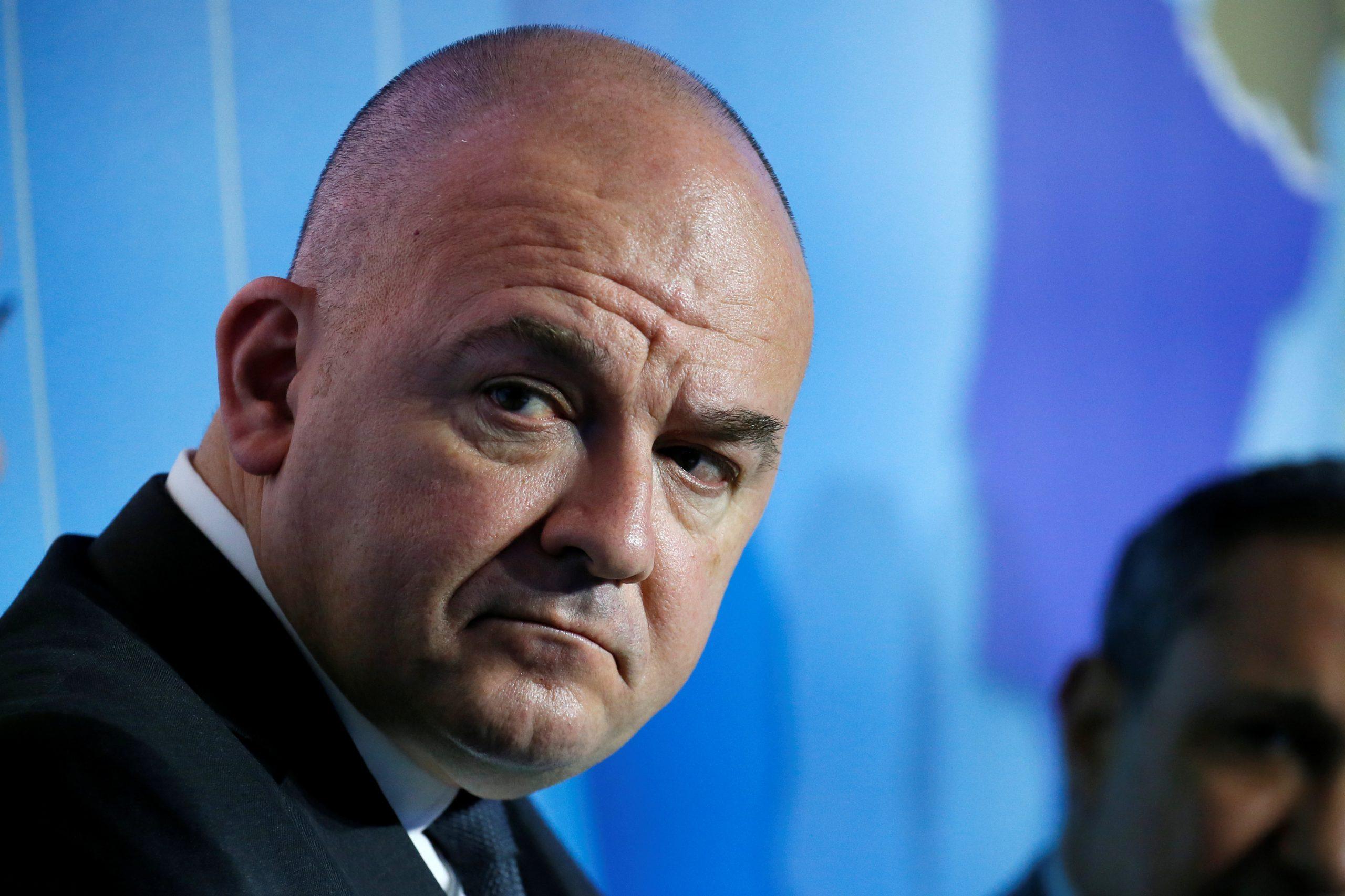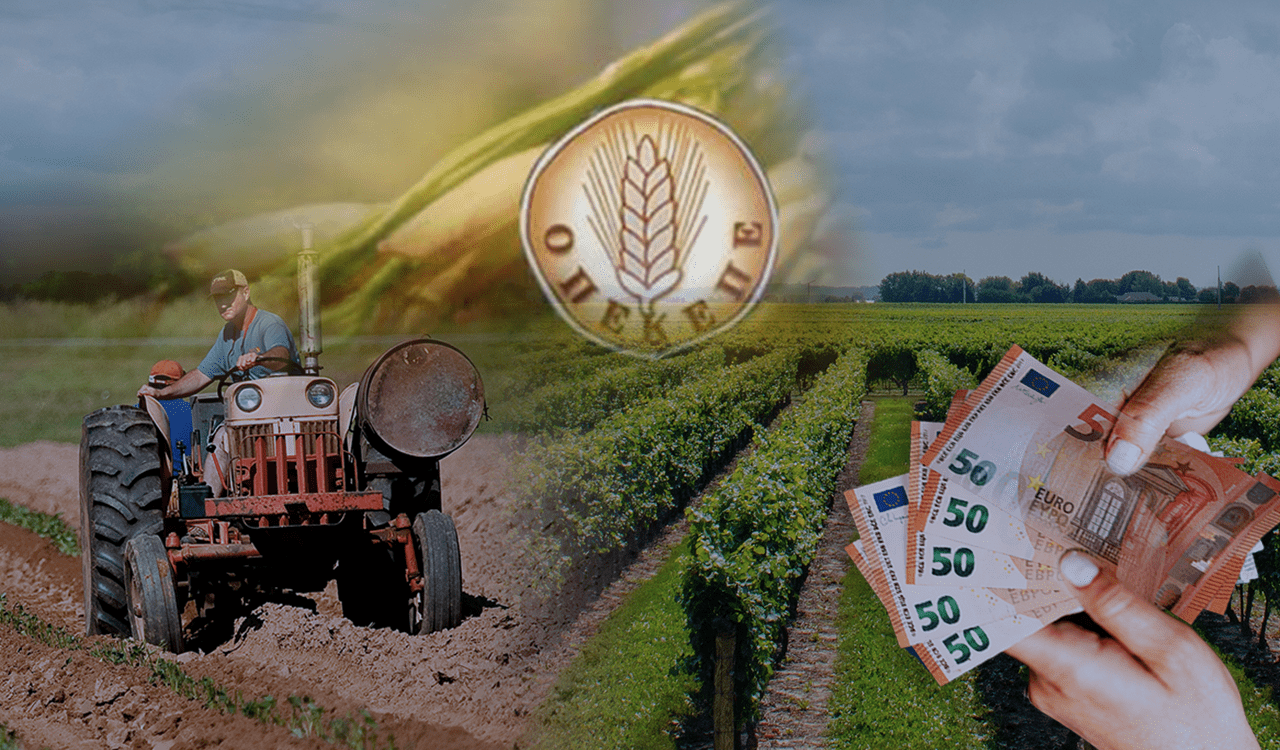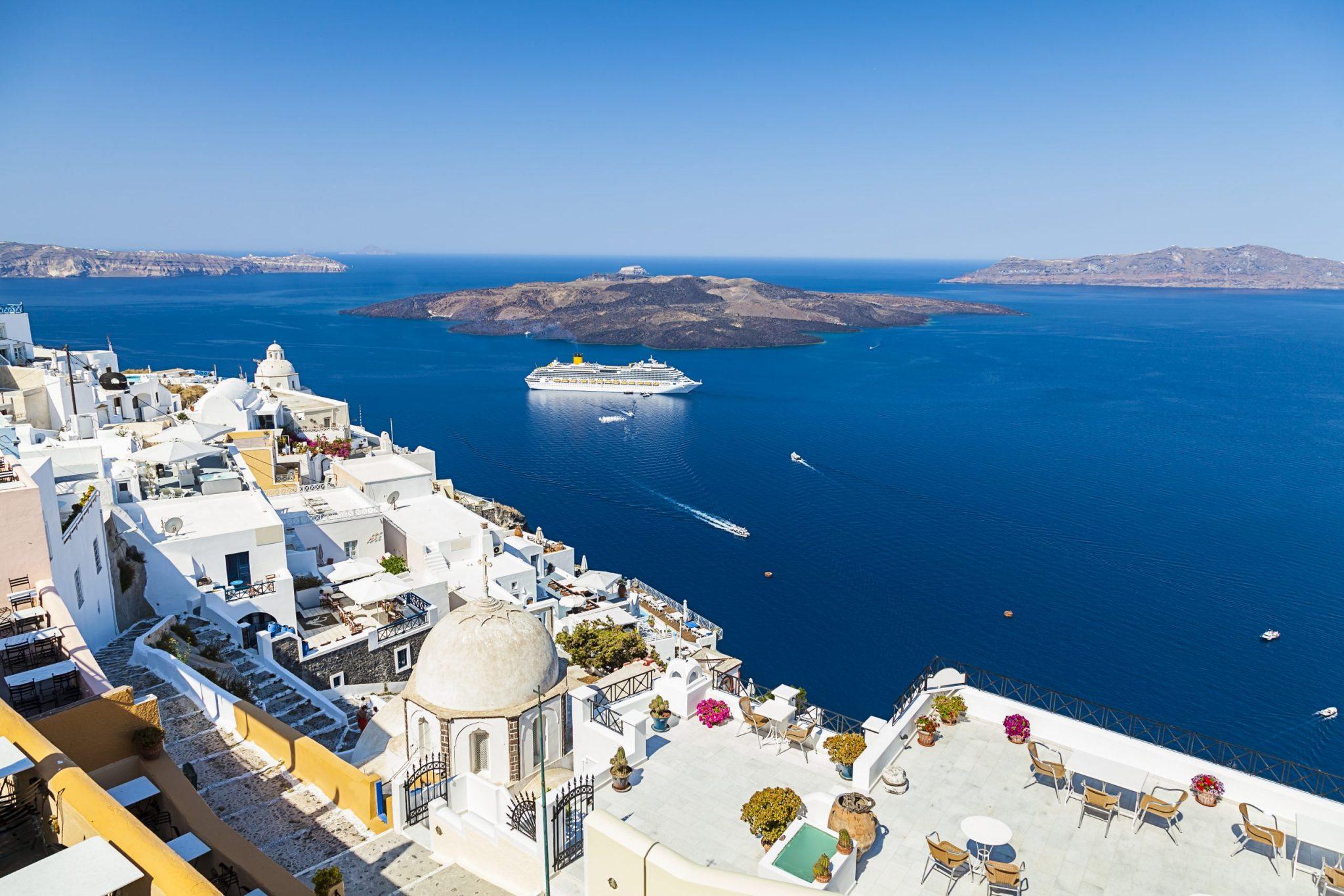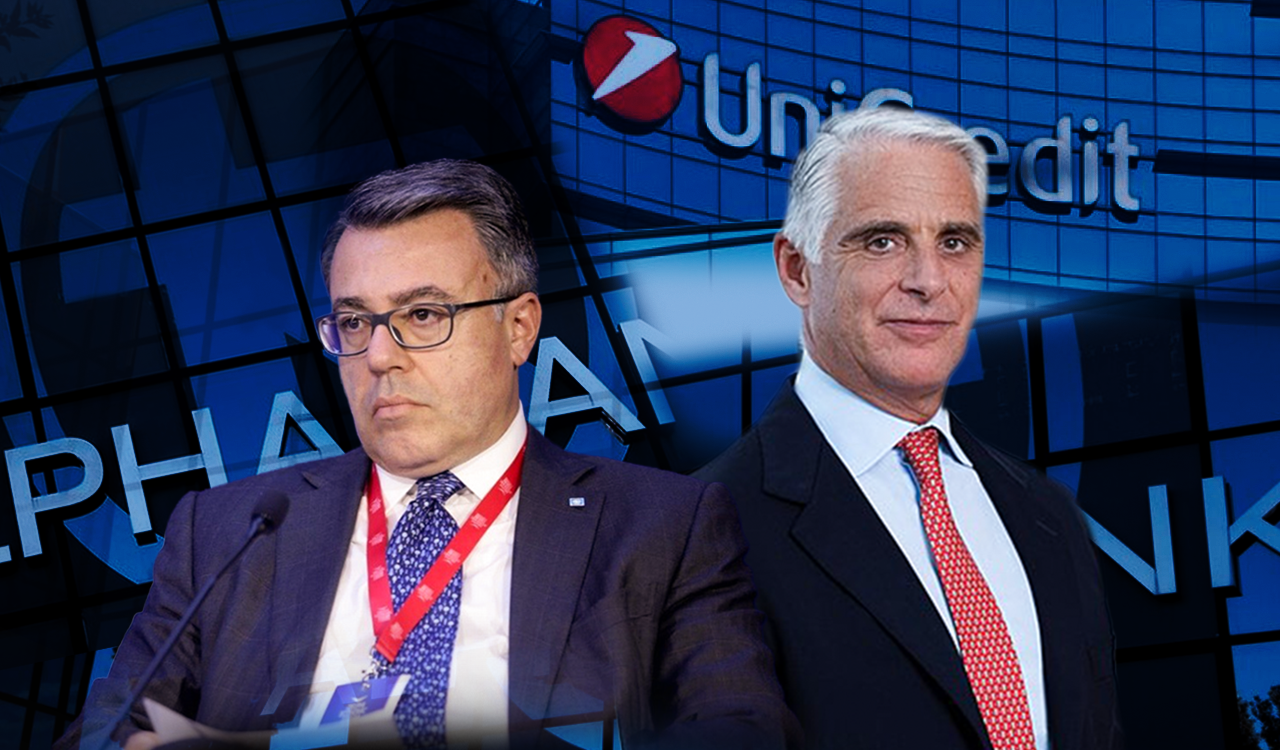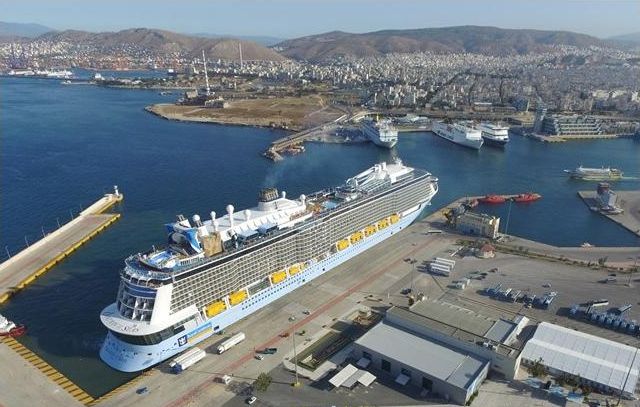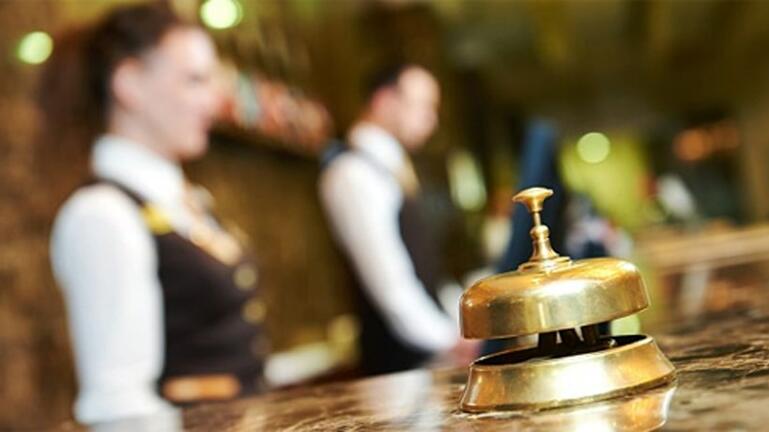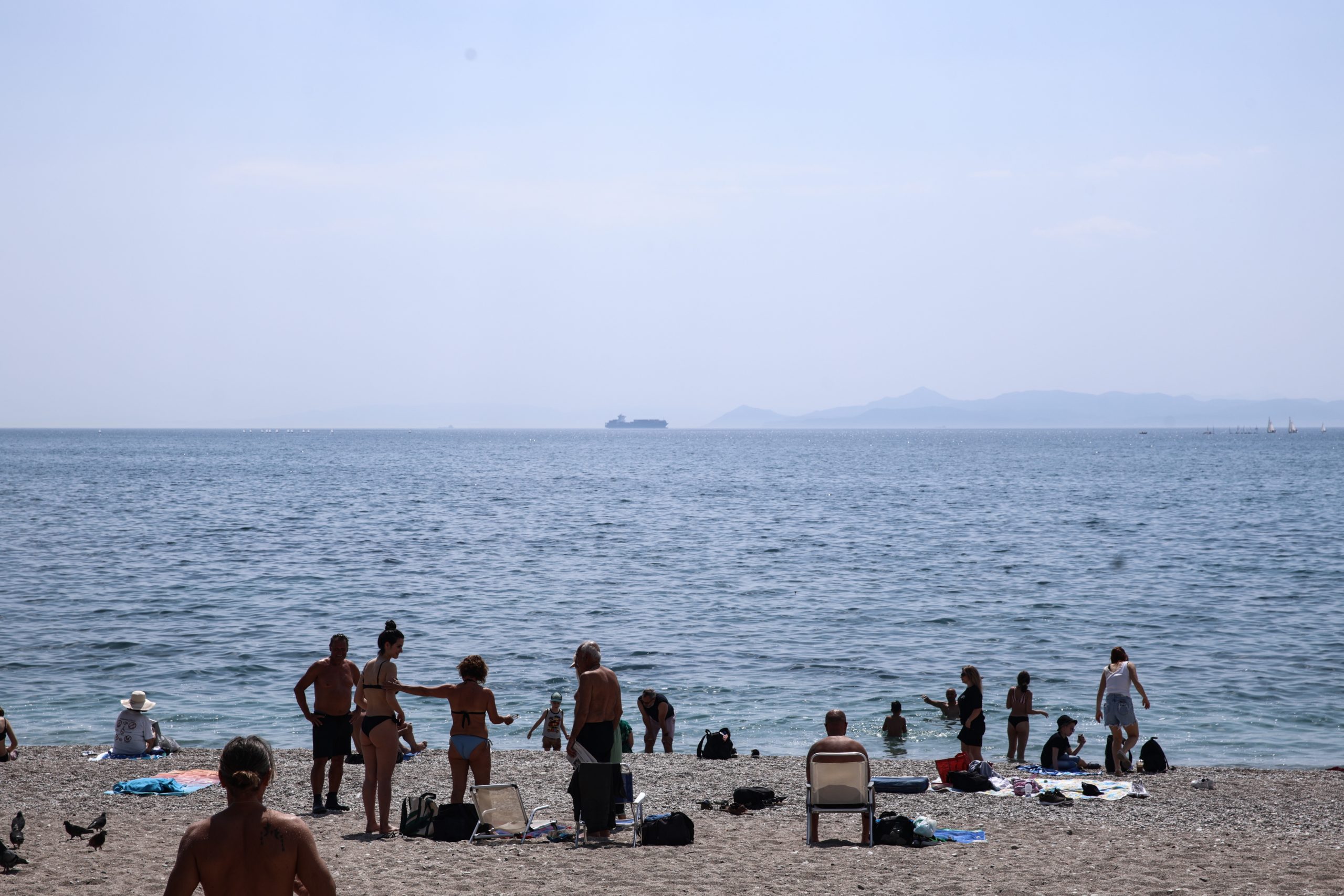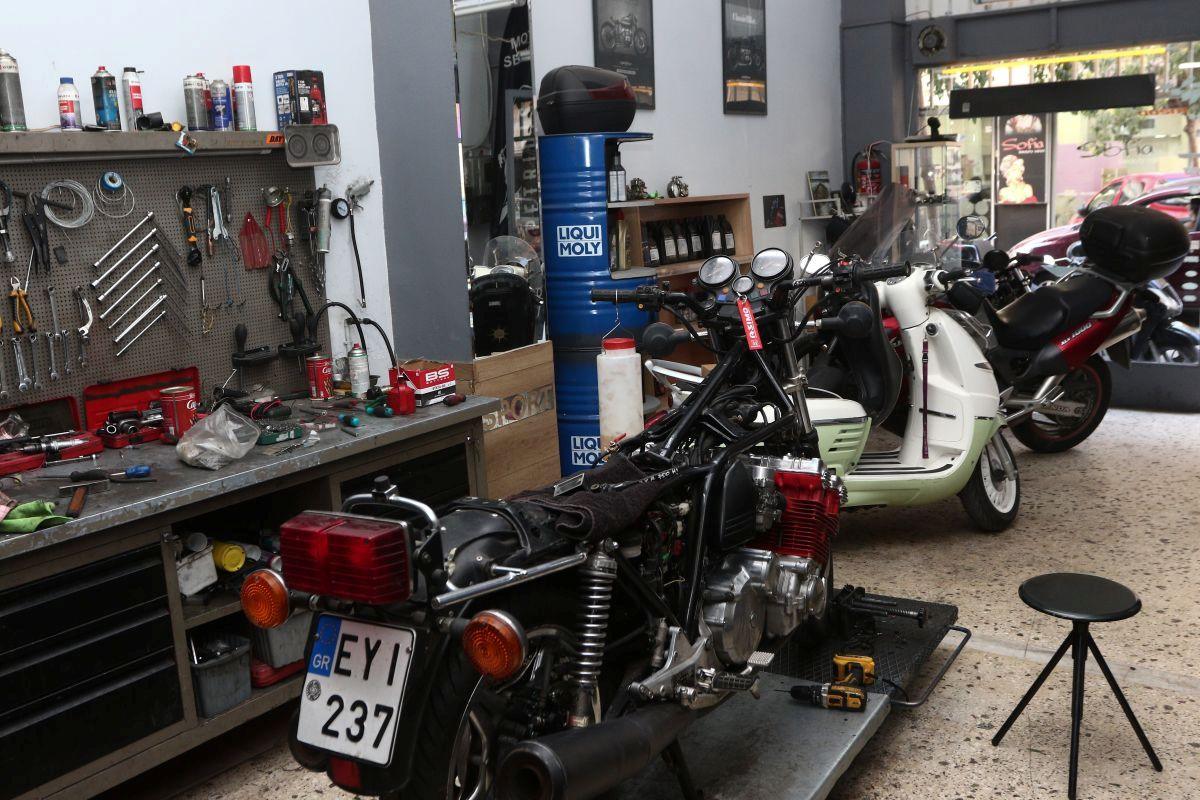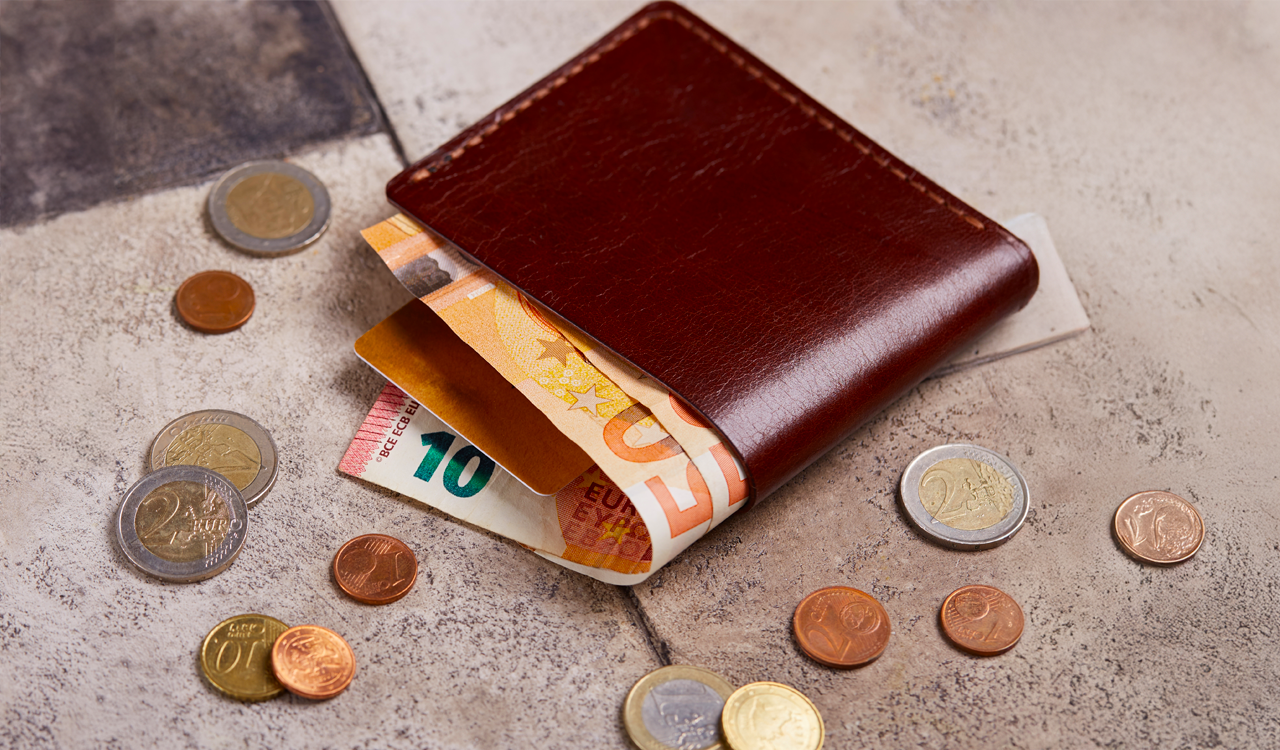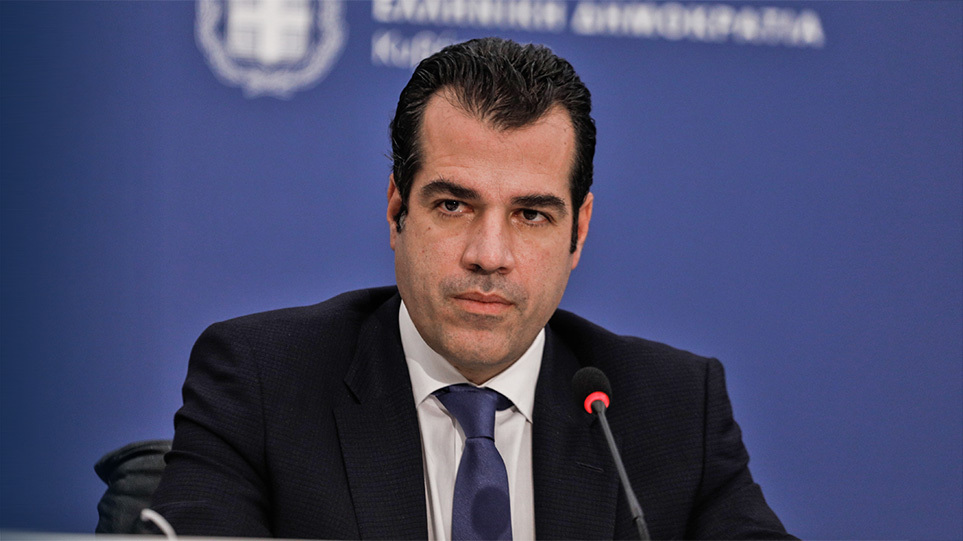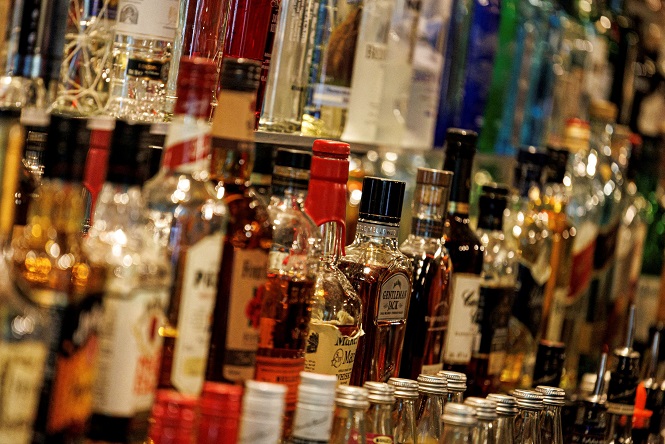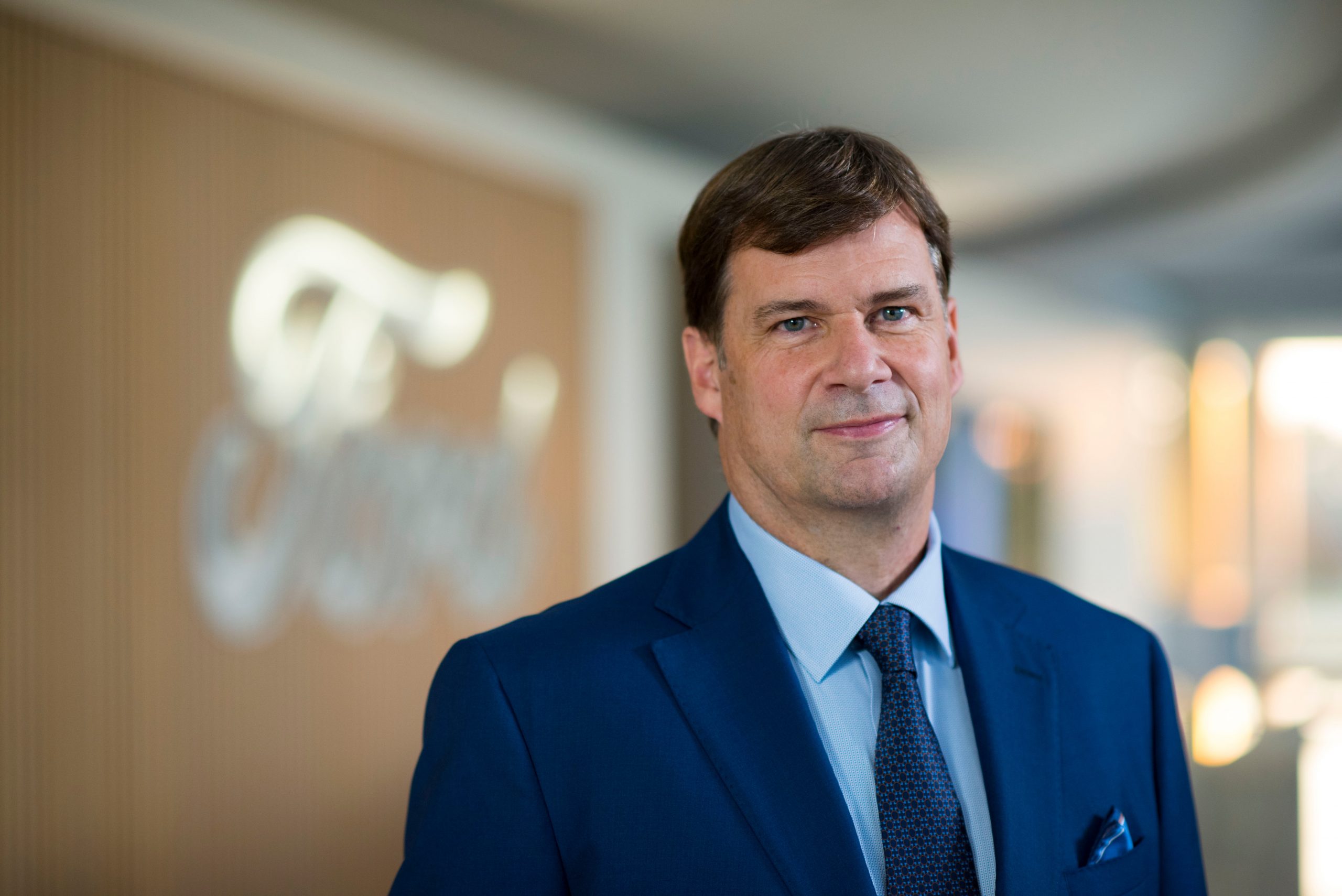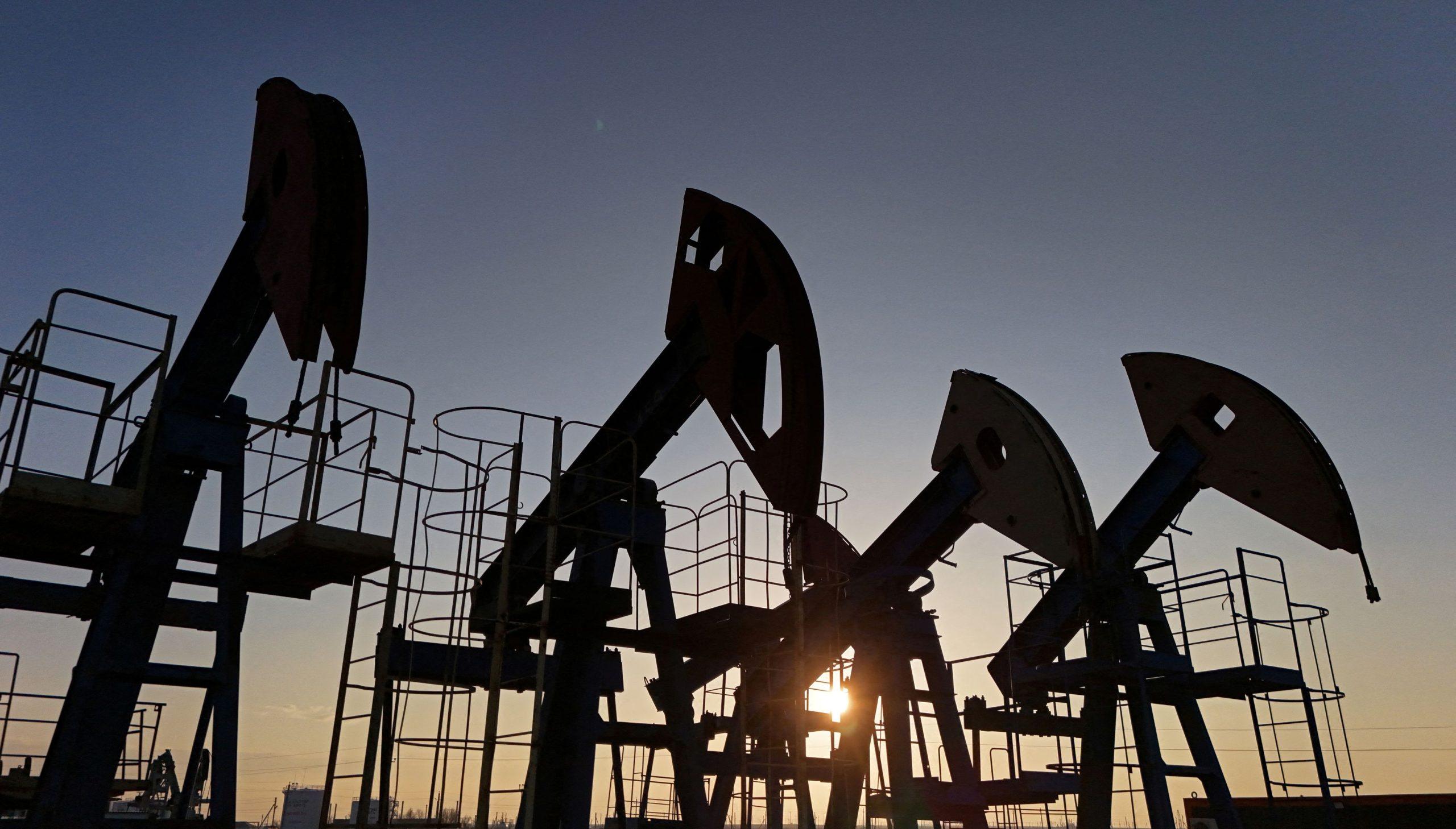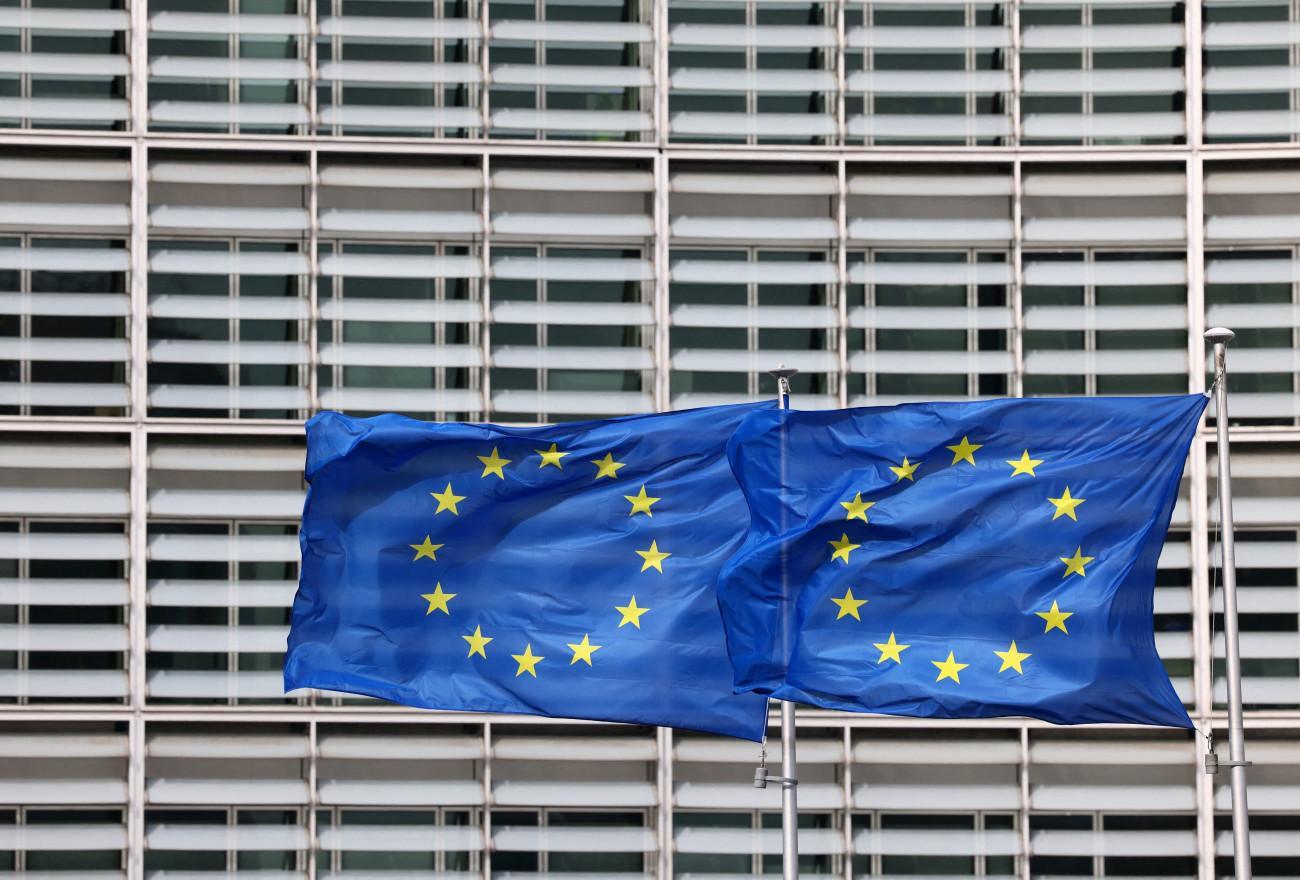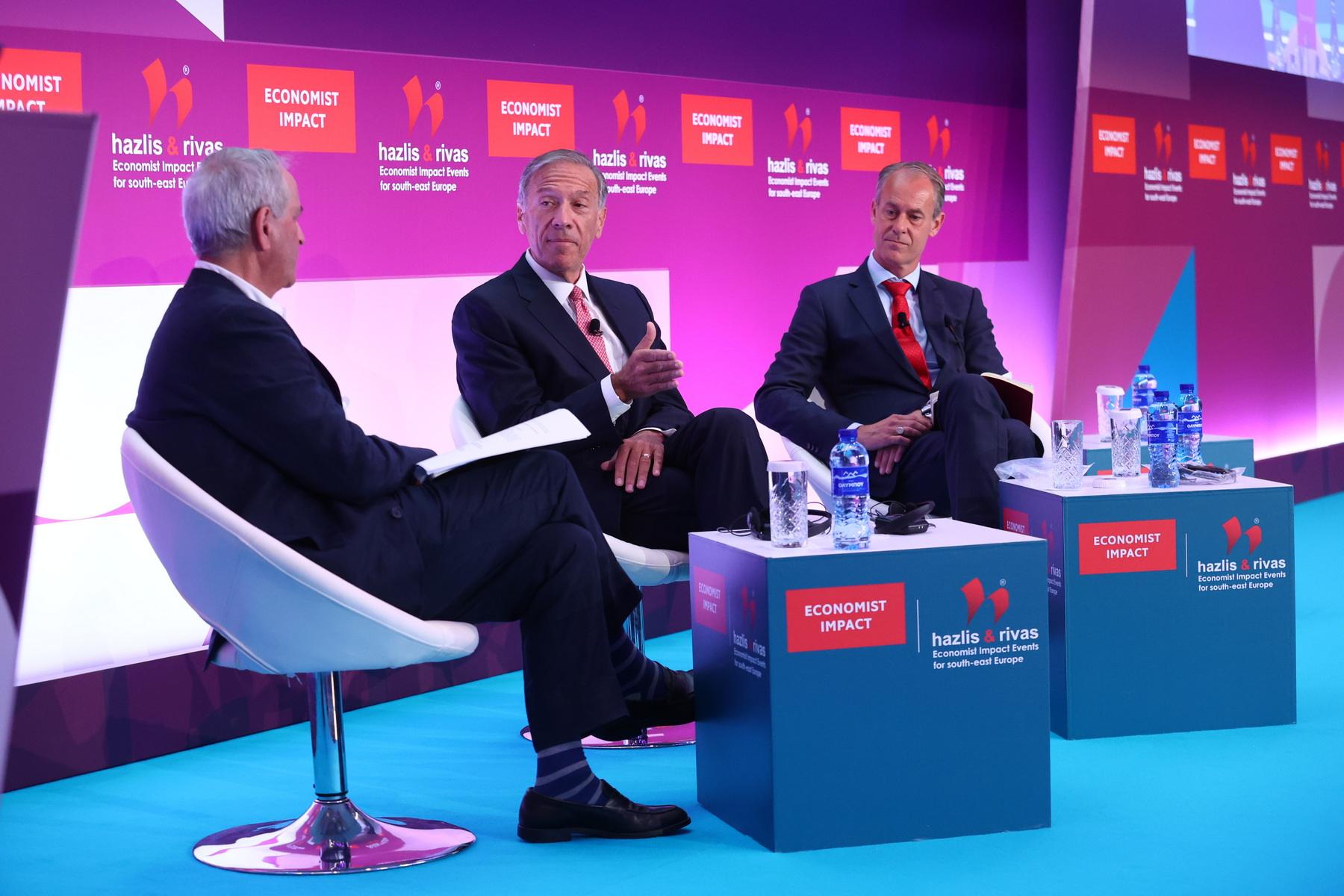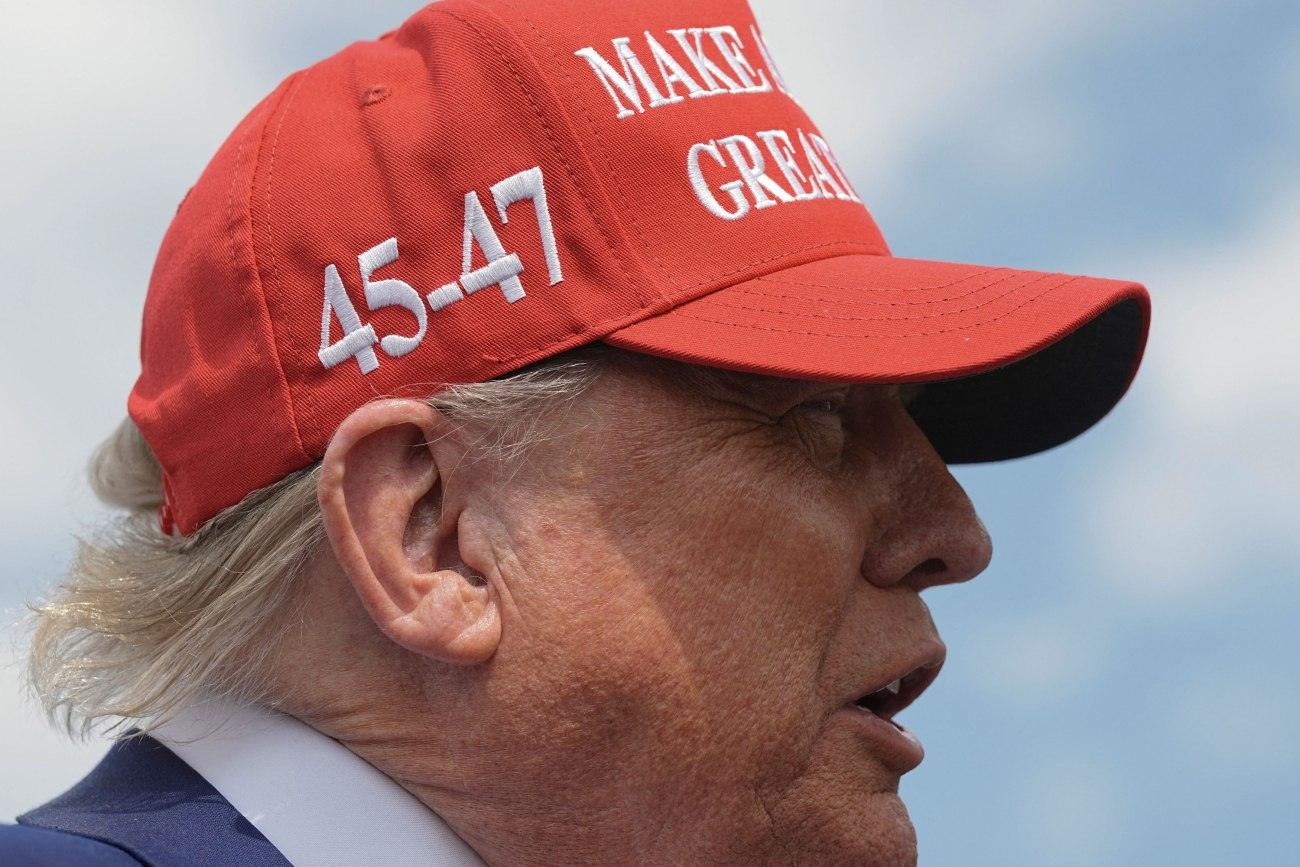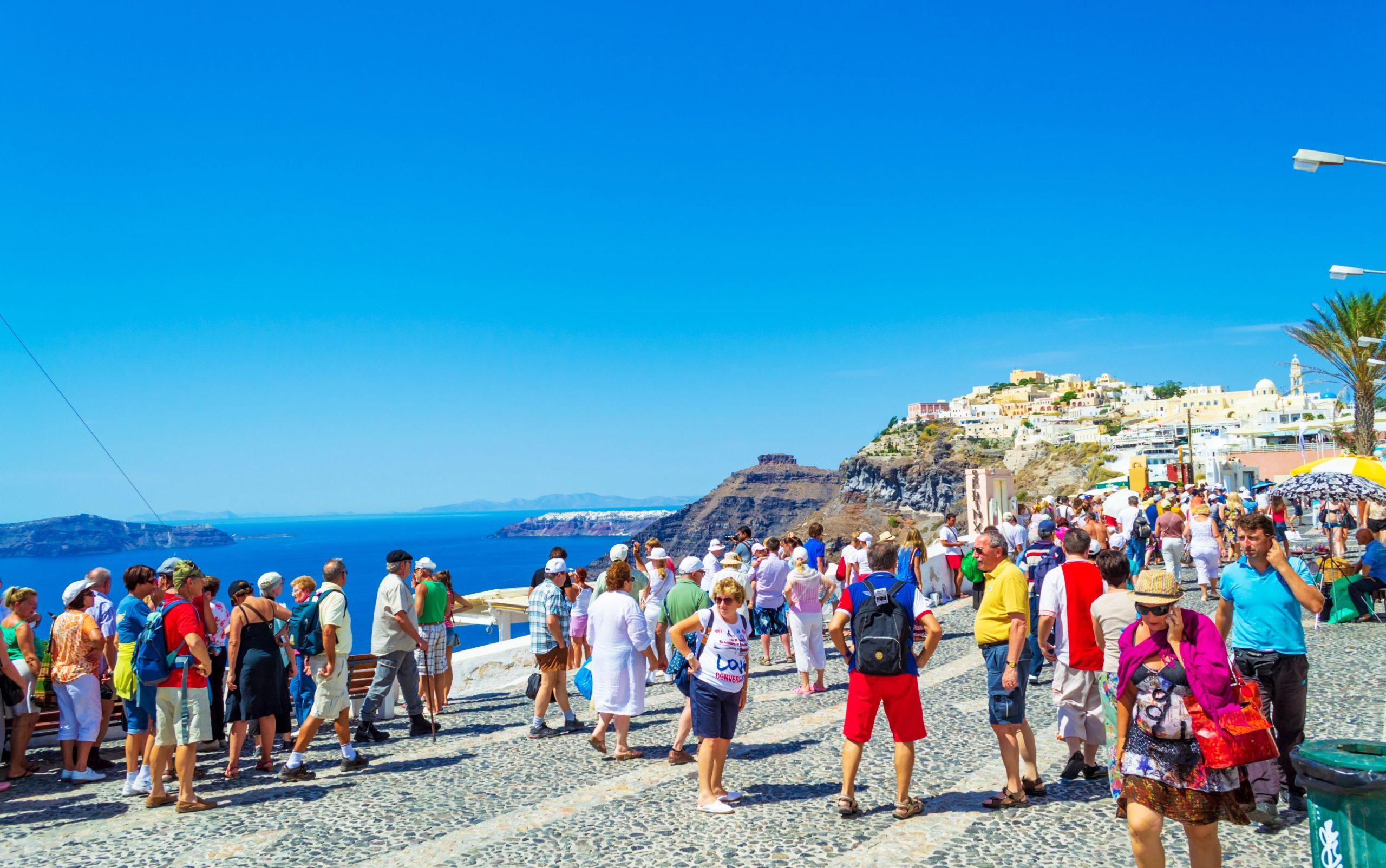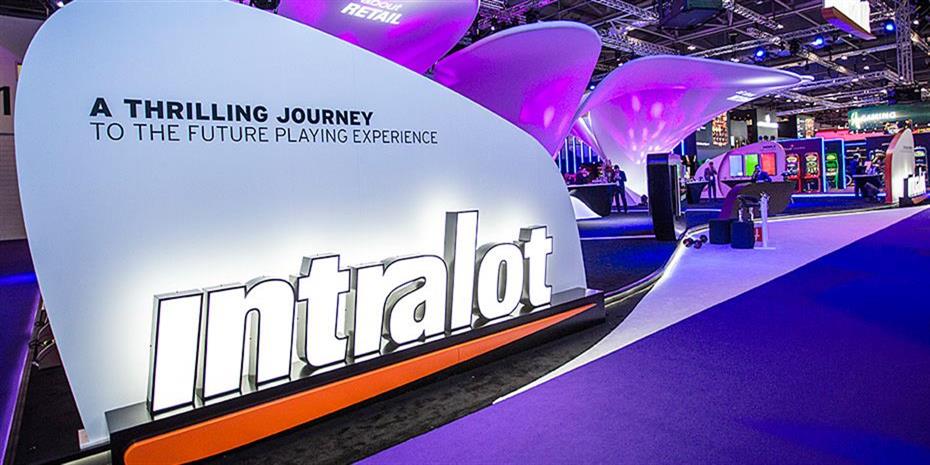Greek Prime Minister Kyriakos Mitsotakis, speaking on ITV’s “Good Morning Britain” program on Wednesday, promised a one-week free vacation on Rhodes for holiday-makers who abruptly cut short their stay on the popular Dodecanese Island last month due to a serious wildfire there.
The one-week free vacation stay is for next spring or autumn on the same island, he clarified.
In response to questions by the show’s presenters, he referred to his government’s handling of the latest devastating wildfires in the country, the specter of climate change, and finally, on the problem of illegal migration affecting Greece and other southern European countries.
The entire television interview reads:
Kate Garraway: Joining us now from Athens is Greece’s Prime Minister, Kyriakos Mitsotakis. Very very good to speak to you this morning. Devastating for your country, devastating for the industry, and devastating for those involved in this. Just update us on what the situation is now. Does it seem to be receding?
Kyriakos Mitsotakis: Well, first of all, thank you for having me on your show and let me just put a few things in context. As you know, we’ve always had wildfires in the Mediterranean, for millennia. What has changed over the past years as a result of climate change is their intensity. Yes, we had a devastating fire in Rhodes, but it affected less than 15%, that’s 15%, of the island. The island is perfectly back to normal. We have no active wildfires as we speak and the weather for the next 15 days looks relatively benign.
I also need to point out that no lives were lost in Rhodes, no injuries reported. We managed to evacuate 20,000 people very, very safely. We understand that this caused some inconvenience for visitors, but I’m happy to report that Rhodes today is more welcoming than ever. The island is back to normal.
And for all of those whose holidays were cut short as a result of the wildfires, the Greek government, in cooperation with the local authorities, will offer one week of free holidays on Rhodes next spring and next fall so that we make sure that they come back to the island and that they enjoy its natural beauty.
Ed Balls: Prime Minister, you will know that pretty much every British tourist interviewed, despite the ordeal they went through with the fires, was full of praise for the way the Greek people, the Greek authorities supported them, helped them, got them through those difficult times. I think that shows you the respect that British tourists have for the people of Greece, but also how important this industry is for your country. Just tell us, today and for the coming weeks, if you are thinking or planning or are booked for a holiday in Greece, should British tourists come to Greece?
Kyriakos Mitsotakis: Of course, they should come to Greece. There’s absolutely no danger. As I told you Ed, we’ve always had wildfires. This is not just a Greek problem, it’s a problem across the Mediterranean. What I can tell you and what was demonstrated in Rhodes is that we’re much better prepared for these types of events. We actually have, in Greece, for the past three years, something which you don’t have yet in the UK, which is the “112” emergency number, which means that we can always blast emergency messages to all of those affected by any natural disaster.
And yes, you’re right to point out that the people of Rhodes were incredibly supportive, they opened up their homes. So, I think, as an act of generosity and reciprocity not only for all of those tourists who have booked their holidays in Rhodes -and they should go- but for all of those who consider last minute bookings, why not choose Rhodes? I understand the weather has not been exactly brilliant in the UK for the past month. So, if you’re looking for last minute bookings, I’m sure you can get excellent deals in Rhodes, or in any other destination in Greece.
But Greece is absolutely safe. We place an emphasis, obviously, on safety. And as I told you, even in Rhodes, less than 15% of the island was affected. So as the fires were actually raging in southwestern Rhodes, the rest of the island was perfectly functioning.
Kate Garraway: Well, let’s hope that people do do that, because it’s a wonderful place to go to. You mentioned, of course, that it’s not uncommon to have serious fires, but your own ministers have talked about this being extreme and climate change being involved. You’re at the absolute sharp end of that, in what you’ve seen in your country. What does it make you think when other international leaders don’t seem to be taking it as seriously? Rishi Sunak has given licenses to more oil refineries and more oil work. So therefore, does it make you think ‘you’re just not getting it’ when other countries take a different approach? Because you have your own energy issues as well, don’t you, in Greece?
Kyriakos Mitsotakis: I think you’re right to point out that we need to actively campaign for what is actually, and should be, an obvious truth: climate change is with us and it is affecting us all in different ways. We may have more extreme weather events in the Mediterranean. The same could also be true for the UK.
As far as Greece is concerned, we are at the forefront of moving away from fossil fuels. We already produce close to 50% of our electricity needs from renewables. We want to push this up to 80% by 2030. And we take both adaptation and mitigation to climate change very very seriously. We want to cut our greenhouse gasses by 55% by 2030 and be climate neutral by 2050. So, for us, this is an absolute priority.
We also know that this is a choice which is not just appropriate in terms of fighting climate change. It’s also responsible in terms of mitigating our dependence on imports of natural gas. We all saw what happened with Europe’s dependence on natural gas from Russia. Renewables are a cheaper way to produce energy and no one can actually take the wind and the sun away from us.
So, it’s a choice which is not only appropriate from an environmental point of view, I think it’s also a wise geopolitical choice and we’re certainly moving down that path as a country.
Ed Balls: But Prime Minister, you’re a politician and politicians have to win elections. You just had an election win a few weeks ago. Were there people saying to you in the months before the election in Greece that you ought to go slower on climate change, that you should reduce the burden you’re asking people to bear because that is better short-term politics?
Kyriakos Mitsotakis: Yes, indeed, we did win a resounding victory a few weeks ago. We have an absolute majority and a very clear mandate to drive through important reforms. Some of the reforms that we need to drive through are obviously related to climate. The good thing is that we have significant funding available also for the European Union to make that transition smoother for households.
But I can tell you, households were particularly hurt by the spikes in the prices of natural gas. And we had to step in and spend a significant amount of money to make sure that these prices were absorbed by the state. And of course, for those regions of Greece, which are, for example, still dependent on coal, we have a special plan to help them transition to a low-carbon economy.
So, I do take these concerns from people very seriously. But at the end of the day, as I told you, producing energy from renewables is going to be cheaper also for households. When you look at some of our Greek islands which have gone green, especially for the smaller islands, it’s much easier to do. In the beginning, we had resistance from the locals. And once they see that they actually pay much less for electricity, they become much more supportive.
So yes, I fully recognize that in the short term there may be some difficulties, but these policies also make a lot of economic sense. They’re not just appropriate in terms of helping us fight climate change.
Kate Garraway: The other thing you’re at the forefront of is dealing with migrants, dealing with refugees. What do you think, because you’ve taken a much tougher line recently, you could teach Rishi Sunak, and what would you advise him to do?
Kyriakos Mitsotakis: Well, what I can tell you, Kate, is that every situation is different. We’ve taken a tough but fair approach vis a vis migration, and we have been able to significantly reduce the flows of migrants arriving on our islands by more than 80%. At the same time, we’ve saved thousands of people at sea, but we have really focused on making sure that we break down the network of smugglers, those who actually prey on desperate people offering them what they market as a safe package, but which could very well end up in a tragedy.
So, I’m a big proponent of actually working with the countries of transit, working with the countries of origin and focusing on eradicating those smugglers who are actually making a lot of money by benefiting from the pain of desperate people. At the same time, I’m fully cognizant of the fact that we need to offer legal pathways to migration. My country, Greece, is currently, for example, in need of agricultural workers. So, we need to be able to offer people who want to come and work in Greece legally, legal pathways to come and do so.
But we want to do it on our own terms. We don’t want the smugglers to dictate our migration policy. And of course, this is not just a Greek problem, it’s a European problem. And it forces us to talk to the people, to those countries in the Southern Mediterranean from where the boats usually originate.
Ed Balls: Prime Minister, your advice is welcome. Your advice to the British people “come to Greece.” I’m sure there will be very many people who are taking your advice. And we look forward to you coming back to the studio here, when you’re next in London.
Kyriakos Mitsotakis: Let me repeat that Greece is perfectly safe and open for business. And for those of you looking for last minute bookings, come to Rhodes.
